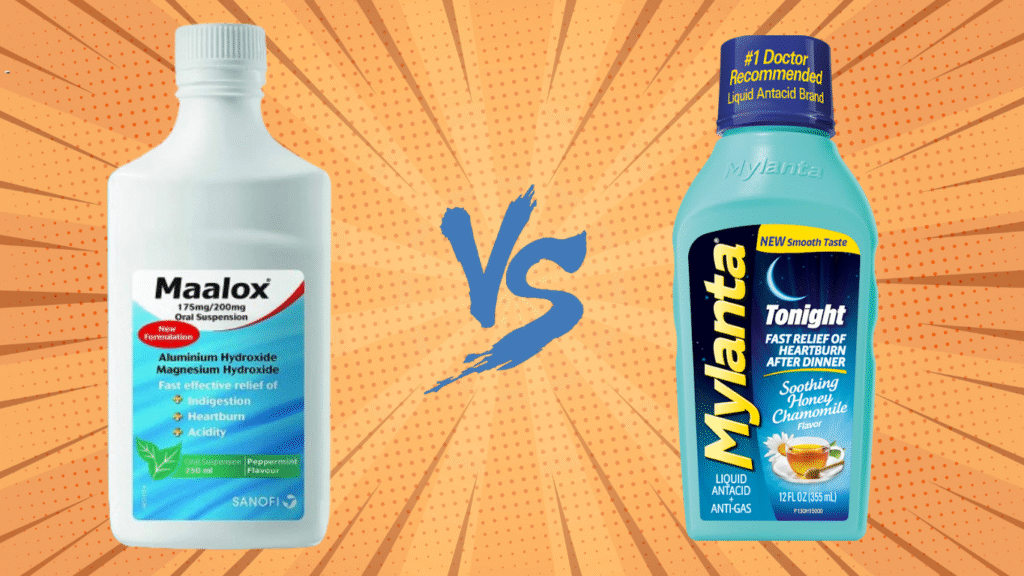Magnesium is an important mineral that is required for the proper functioning of your body. It is helpful in promoting muscle and nerve activity, strong bones, and energy production, that’s how it promotes overall health. All supplements of Magnesium are not same. The two common types—magnesium oxide and magnesium citrate—offer different benefits, absorption levels, and applications.
So, which one should you choose? Let’s look at the differences in this comprehensive comparison of magnesium oxide vs magnesium citrate.
What Is Magnesium and Why Is It Important?
Magnesium plays a vital role in more than 300 biochemical processes in your body. It contributes to:
- Muscle and nerve function
- Blood pressure regulation
- Bone growth
- Blood sugar management
- Energy production
Magnesium deficiency can cause symptoms such as muscle cramps, fatigue, irregular heartbeat, and mood swings. If you don’t have enough magnesium in your diet, supplements can be beneficial—but it’s important to choose the right kind.
What Is Magnesium Oxide?
Definition:
Magnesium oxide is a formulation of magnesium and oxygen. It is often available in tablet or capsule form and is commonly used in various over-the-counter remedies.
Common Uses:
- Temporary relief from constipation
- Antacid for managing acid reflux
- Periodic magnesium supplement
Pros:
- High magnesium concentration per dose
- Affordable
- Widely available
Cons:
- Very low absorption rate (about 4%)
- Bloating and diarrhea like gastrointestinal problems may occur
If your goal is to effectively increase magnesium levels in your body, magnesium oxide is not the best choice.
What Is Magnesium Citrate?
Definition:
Magnesium citrate is formulation of magnesium with citric acid, that helps in improving its solubility and absorption in the digestive system.
Common Uses:
- Gentle relief from constipation
- General magnesium supplementation
- Often used for colon cleansing before medical procedures
Pros:
- Increased bioavailability (absorbs more effectively—about 25-30%)
- Easier on the stomach
- A better option for boosting magnesium levels
Cons:
- Lower concentration of magnesium per serving
- Slightly more expensive than magnesium oxide
Magnesium Oxide vs Magnesium Citrate: Key Differences
| Feature | Magnesium Oxide | Magnesium Citrate |
|---|---|---|
| Magnesium Content | High per dose | Moderate per dose |
| Absorption | Low (~4%) | Higher (~25–30%) |
| Cost | Affordable | Moderately priced |
| Best For | Occasional constipation, antacid | Deficiency, regular supplementation |
| Side Effects | GI issues, bloating | Mild laxative effect |
Which One Should You Choose?
For constipation relief:
While both options work as effective laxatives, magnesium citrate is often preferred due to its gentle effects and fewer side effects.
To correct magnesium deficiency:
Choose magnesium citrate. Its better absorption helps raise magnesium levels more efficiently.
For those on a budget:
Magnesium oxide provides adequate amounts of magnesium at a lower cost. It is suitable for short-term use when absorption is not the main concern.
Potential Side Effects and Interactions
Although both types are generally safe, they may cause:
- diarrhea
- stomach cramps
- nausea (especially if taken in large doses)
There is a possibility of drug interactions with antibiotics, blood pressure medications or diuretics. It is important to consult your doctor before starting any supplements, especially if you have kidney problems.
Dosage and Forms
Both magnesium oxide and citrate are found in the following forms:
- Tablets
- Capsules
- Powder (mixed with water)
- Liquid solution
Usual adult dosage:
- Magnesium oxide: 250–500 mg daily
- Magnesium citrate: 200–400 mg daily
Always consult a healthcare professional before taking more than the recommended dosage.
Buy Best
Also Read
Conclusion
Both magnesium oxide and magnesium citrate play important roles in the supplement world, but your choice should be made based on your individual health needs.
- If your goal is to increase magnesium levels or you prefer a mild laxative, choose magnesium citrate.
- If you are looking for an affordable option for occasional use or relief from antacids, choose magnesium oxide.
Always consult your healthcare professional to find out the most appropriate form and dosage for your specific circumstances.
FAQs
Is magnesium citrate better for sleep than oxide?
In fact, citrate may promote relaxation and improve sleep more effectively due to its better absorption.
Can I take magnesium oxide daily?
Yes, but be careful of its low absorption and possible side effects. Unless otherwise recommended, it is more suitable for short-term use.
Which form causes fewer side effects?
Magnesium citrate is generally easier on the stomach and causes fewer digestive problems.
How quickly do they work for constipation?
Both take effect within a few hours. Citrate usually works more quickly and less intensely.
Are these supplements safe for kids or elderly?
Yes, however, the dosage should be modified and for children or elderly individuals it should only be given under the supervision of a healthcare professional.







